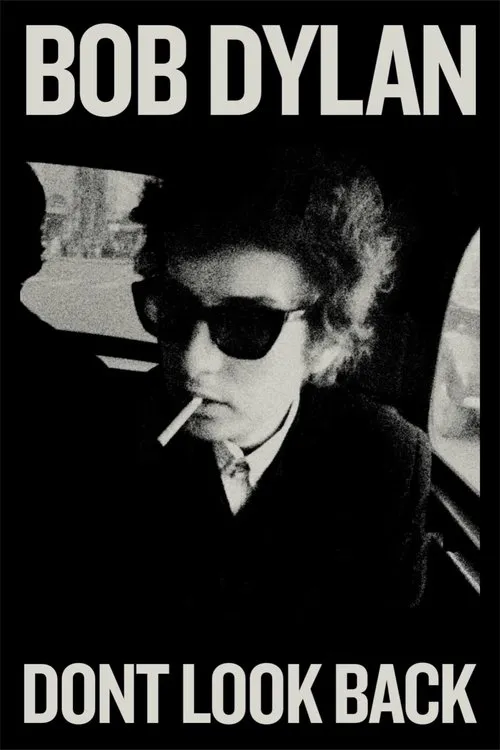Dont Look Back

Plot
Dont Look Back is a 1967 British-American music documentary film directed by D.A. Pennebaker. The movie is widely regarded as one of the most important rock films ever made, offering a captivating glimpse into the life and work of Bob Dylan at the height of his popularity. The documentary was filmed on location in the United Kingdom over a brief period in May 1965, while Dylan was in the midst of his tumultuous 65 tour. As the film commences, Dylan and his entourage - including manager Albert Grossman, publicist Ron Cohen, and road manager Albert Brooks - arrive in London, amidst a frenzy of media attention and teenage fan excitement. The opening scenes depict the band setting up for a television concert with the BBC, showcasing their electrifying chemistry on stage. However, a more intriguing and introspective side of Dylan emerges as the film delves deeper into his interactions with those surrounding him. Bob Dylan's interactions with both his fans and the press are central to Dont Look Back. His response to the fervent admiration of the young fans is telling - with some scenes showcasing him laughing and engaging with the kids, while others demonstrate his growing frustration with their expectations and pressures. Dylan's conversations with the media are similarly compelling, as he navigates the complexities of being a rock hero while seeking to preserve his artistic integrity. Journalist Albert Grossman orchestrates numerous interviews with Dylan, often using the discussions as an opportunity to promote Dylan's image and music, though Dylan frequently pushes back against his publicist, revealing the tension in his relationships. The confrontations between Dylan and the reporters also provide a platform for Dylan to express his thoughts on a range of subjects, from music and politics to relationships and existentialism. Throughout the film, Dylan interacts with other influential figures of the time, many of whom are also musicians. His friendships and musical collaborations with the likes of Joan Baez, Donovan, and Alan Price showcase the interconnectedness of the creative community in the 1960s. These scenes humanize Dylan, revealing a more vulnerable and introspective individual beneath his iconic public persona. Donovan's performances, both in the film and on stage, demonstrate the emerging folk-rock sound of the era. The interactions between Dylan and Donovan reflect their shared musical passions and shared interest in social activism, showcasing an underappreciated aspect of their relationship. Dont Look Back features stunning cinematography, much of it handheld and naturalistic, capturing the frenetic pace and raw energy of the 1965 tour. D.A. Pennebaker uses this immersive visual style to convey the sense of chaos and unpredictability surrounding Dylan at the time. Moreover, the movie captures the tensions and stresses that accompanied Dylan's rapid rise to fame. Dylan's exhaustion, frustration, and feelings of suffocation are palpable in some of his more candid and introspective moments. This portrayal offers an unprecedented glimpse into the psychological and emotional challenges Dylan faced as he navigated the ever-growing pressures of fame and public expectation. Ultimately, Dont Look Back is much more than a simple documentary. It is a deeply personal portrait that not only showcases a pivotal moment in the life and career of Bob Dylan but also a significant moment in the evolution of American music and the counterculture movement. By offering an intimate, observational look at Dylan and his world, the film provides an enduring testament to the power of creative genius and the enduring appeal of the musical revolution that defined the 1960s.
Reviews
Recommendations




